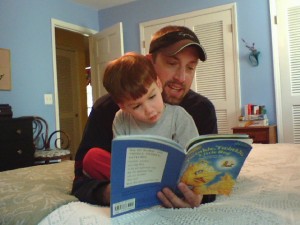 Forgiveness is a tricky thing. Everyone wants it when they need it. Few want to give it when they should.
Forgiveness is a tricky thing. Everyone wants it when they need it. Few want to give it when they should.
It’s like opening a door for someone. We always want it done for us. But it’s really a pain and inconvenient to do it for someone else. I’ve noticed that we barely hold doors for each other anymore. If we cannot even tolerate doing that simple physical act, it should not surprise us that so few are willing to do the heavy lifting of the emotionally exhausting task of forgiving someone who hurt us. We have a deficiency of forgiveness in our world and it is fracturing our families, friendships and culture. Why is forgiveness so difficult to practice in our daily lives? I have at least three theories:
- One reason that forgiveness is so rare is because of our lack of examples. Forgiveness is not what is modeled in Hollywood from our action heroes. Revenge sells, forgiveness does not. It is not sung about by our favorite musicians. Sex sells, forgiveness does not. It is not written about by the New York Times best sellers. Vampires sell, forgiveness does not. It is not mentioned in our daily evening news program. Murders sell, forgiveness does not. Like the story of a man who returns a lost wallet, the only reason it is newsworthy and memorable is because so few do it. It may be preached about from an occasional pulpit but it is rarely lived out consistently in the pew. And sadly, it is rarely exercised in our homes. Parents yelling at each other. Kids fighting. Mean words. Hurtful behavior. Snide remarks. Sarcastic comments. The silent treatment. And that is from the people we love. The concept of forgiving an enemy is almost laughable if we cannot even forgive our friends. Like it or not, forgiveness is more caught than taught. We forgive because we were forgiven.
- Another reason forgiveness is so rare is because it is so hard. In fact, it may be the hardest thing you ever have to do. It is simply easier to walk away than it is to face and address the cause of our pain. Logically, this makes sense. From our earliest memory, we have been taught and conditioned to avoid pain. The first word I ever learned was “hot”. Apparently the stove was an attraction to me as a child. I’m not suggesting that we should be sadistic and pursue pain or to see how long we can tolerate it. I am not saying that people need to endure or remain in an abusive situation. But I am suggesting that perhaps we need to build up a stronger threshold to some pain and learn how to address it, particularly in regards to forgiving others. Face it, we are a soft culture. We are warriors in the virtual world and cowards in the real one. We would rather work out physically than produce one drop of sweat emotionally. Instead of having a thick skin around a soft heart, our thin skin barely covers a hard heart. We love to dish it out but so few can take it.
- Lastly, most people cannot get past the offense. Forgiveness is nearly impossible when you only focus on the offense. In other words, if my focus is only on the offense done to me, I’ll never get to the point of forgiving the offender. The wrong, no matter how wrong, should always remind us of the wrong that lives in us. The pain we receive, no matter how painful, should always remind us of how capable we are of inflicting pain on others. When viewed in that context, it should make us a bit more sympathetic to the offender and a bit more empathetic to forgive. The problem is we are normally blinded by the wrong and too overwhelmed by the pain to stop and remember – someone else has been hurt by us.
When I think of the topic of forgiveness, I am often reminded of the grisly events of October 2, 2006 in Lancaster, PA. A gunman entered an Amish schoolhouse, barricaded the door and shot ten girls (aged 6-13) execution style, leaving five dead. He then killed himself. The harmless Amish community were shocked at what had happened. Such brutality. Such innocence lost. Such evil. How would you respond to such a senseless crime? What would you do if that was your daughter or granddaughter? Your sister? Your niece? What the Amish did that day was supernatural. They set for us an amazing example.
On the day of the shooting, a grandfather of one of the murdered Amish girls was heard warning some young relatives not to hate the killer, saying, “We must not think evil of this man.” Another Amish father noted, “I don’t think there’s anybody here that wants to do anything but forgive and not only reach out to those who have suffered a loss in that way but to reach out to the family of the man who committed these acts.” Days later, the Amish set up a charitable fund for the family of the shooter. 30 Amish members attended the gunman’s funeral.
Has any offense been done to YOU that is worse than this? Was your first reaction to forgive? Were you in a position of emotional strength to forgive ON THE DAY of the offense? Did you reach out to the offender or their family? Remember, hurt people hurt people. You aren’t the only one in pain here.
Un-forgiveness and bitterness are a cancer that only forgiveness can cure. Holding a grudge only holds you. Every offense brings a terrible odor to that relationship. At that point, only the offended can change that smell. Adding un-forgiveness to the offense is like spraying a skunk with manure. Someone has to fix the stench and the offended party is the only one in a position to do it. Mark Twain understood this when he wrote, “Forgiveness is the fragrance that the violet sheds on the heel that has crushed it.”
If you’re honest, there is probably a person out there you need to forgive. Forgiveness does not excuse the wrong. Forgiveness does not minimize the crime. Forgiveness does not reduce the consequences. But forgiveness does something that avoidance or prison cannot – it can bring healing and restoration to you, the offender and even that relationship.
I don’t want to raise any barns. I’m not interested in churning any butter or even wearing black outfits for the rest of my life. I prefer six horsepowers over one with a buggy. The Amish may not use electricity. They don’t know how to use a toaster or even surf the web. But they understand how to forgive, not just with their lips – but even with their life.
The Amish can teach all of us sophisticated people a lesson or two.




 When something expensive is broken and money is flowing, we are quick to throw the broken item away and simply buy a new one. But when something costly is broken and cash is low, we must figure out how to fix what we have. Unfortunately, as a “wealthy, first-world” country, we have been allowed to replace too many things for too long. In fact, in many ways – it’s actually easier and cheaper to buy something new.
When something expensive is broken and money is flowing, we are quick to throw the broken item away and simply buy a new one. But when something costly is broken and cash is low, we must figure out how to fix what we have. Unfortunately, as a “wealthy, first-world” country, we have been allowed to replace too many things for too long. In fact, in many ways – it’s actually easier and cheaper to buy something new.



